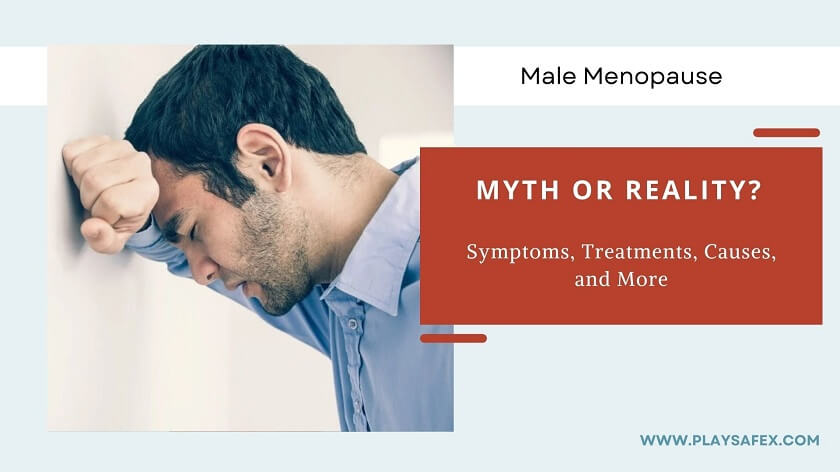Many of us are familiar with menopause, the midlife hormonal change that marks the end of a woman’s menstrual cycle.
What about men?
Natural hormonal changes occur in both men and women throughout their lifetime.
During menopause, women typically experience a relatively abrupt drop in estrogen and progesterone levels, whereas testosterone levels will typically peak during their 20s and gradually decline as they age.
A man can continue to reproduce well into his senior years, unlike women.
A term such as ‘male menopause’ and ‘manopause’ are often misconstrued. For women, menopause is a natural and inevitable part of aging, but for men, a reduction of testosterone production isn’t a monumental event and doesn’t happen to everyone.
Check out every review on Male Menopause Myths vs Facts.
Male Menopause Myths and Facts
Usually, we only hear about women during menopause.
As we age, our testosterone levels decrease, and this phenomenon is known as ‘male menopause.’
Nonetheless, men and women have very different hormone profiles as they age.
What is the difference between the two?
(Female) menopause is characterized by the cessation of ovulation and a drop in hormone production over a short period of time.
Our testosterone and other hormone levels decline more gradually over the course of time, with somewhat hazy consequences in this area in men.
Known as age-related low testosterone, this much slower decline in testosterone levels is called late-onset hypogonadism.
How Long Does Male Menopause Last
As the body adjusts to low testosterone, menopause is a gradual process.
Menopause can be uncomfortable for 15 to 20 years, according to some sources.
Regardless, since testosterone levels decrease continuously over time, many people believe that male menopause remains permanent if left untreated.
If you are wondering What Are Signs Of Male Menopause then check out the next section.
Male Menopause Symptoms
The T levels of men naturally begin to decline after the age of 40 (at around 1% per year).
Remember, however, that testosterone declines gradually, not suddenly.
T levels are still normal in most older men despite this gradual decline. Low testosterone is not a common occurrence in older men.
T levels are considered ‘low’ only in 10 to 25 percent of men.
It is common for older men to go unnoticed during this time because of low testosterone levels.
Moreover, the condition requires a blood test to detect, so it isn’t often recognized. The symptoms of low T vary from guy to guy, and some men never experience them at all.
Low testosterone can be caused by a variety of lifestyle factors, medications, and medical conditions.
What are some ways you can identify low testosterone?
Below are some signs and symptoms of low testosterone:
- Reduced libido
- Fewer spontaneous erections or erectile dysfunction (ED)
- Infertility
- Sweats
- Lack of energy and motivation
- Poor concentration
- Low mood
As a result of low testosterone, many men have trouble sleeping and experience muscle and strength loss as well as increased body fat.
Male Menopause Treatment
Stress or anxiety must be determined prior to diagnose and treating depression.
Medications and behavioral therapies may be prescribed if stress is the cause.
Exercising and relaxing can also relieve symptoms. Be sure to discuss the potential risks and side effects of hormone replacement therapy with your doctor.
If testosterone is replaced, for example, prostate cancer may become more severe and heart disease risks increase.
For men over 45 years of age, it is recommended that their PSA (Prostate-Specific Antigen) levels be measured prior to starting testosterone replacement therapy.
A variety of hormone replacement options are available, including injections, tablets, patches, implants, gels, and patches.
The Verdict
Testosterone levels can only be assessed by a blood test. In addition to helping relieve symptoms, testosterone replacement therapy carries some risks, such as those associated with estrogen replacement therapy.
Prostate cancer, for instance, could be aggravated.
Patients with low testosterone should speak to their physician about lifestyle changes and other medications that may help with symptoms, such as antidepressants as well as hormone replacement therapy.
All therapies should be carefully weighed.



